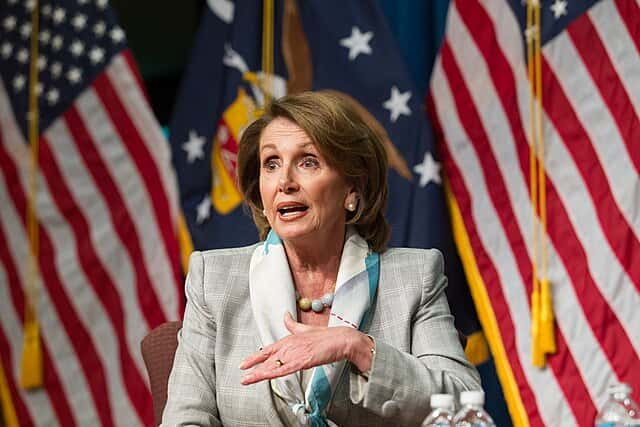
In a high-profile criminal case that has garnered significant media attention, David DePape, the man accused of assaulting Nancy Pelosi’s husband, Paul Pelosi, is making a controversial request.
His defense attorneys are asking prospective jurors to disclose their political affiliations and whether they have ever voted for the former House Speaker, Nancy Pelosi. This request has ignited a debate about the role of politics in the justice system.
Nancy Pelosi’s Husband Targeted
DePape, a self-proclaimed MAGA supporter, faces serious charges related to a home invasion that took place in October 2022.
The incident, captured on police bodycam video, allegedly involved the fracturing of Paul Pelosi’s skull with a hammer and an attempted kidnapping of a federal officer. With a potential 50-year federal prison sentence looming, DePape’s defense team is concerned about the fairness of the upcoming trial.
The defense argues that the jurors’ political persuasion may significantly impact the outcome of the trial. They believe that a jury predominantly composed of Nancy Pelosi voters may struggle to evaluate the evidence objectively.
Read more: Georgia Bar Tragedy: Stray Bullet Ends The Life Of A 21-Year-Old Woman
Legal Experts Weigh In on Political Juror Inquiries

Experts suggest that it is permissible to ask prospective jurors about their political connections during the voir dire process, when jurors are questioned about their backgrounds, because of the case’s high-profile nature and the political backdrop surrounding it.
Federal prosecutors, on the other hand, assert that such inquiries infringe on the privacy of voters and undermine the long-standing principle of the secret ballot. They argue that political affiliation or voting history does not necessarily correlate with bias and, therefore, should not be used as a basis for jury selection.
The court’s decision on this matter remains pending, and the debate continues. While DePape’s defense seeks transparency in the jury selection process to ensure a fair trial, the prosecution contends that this transparency may compromise the privacy and integrity of the American electoral system.
As this high-stakes case unfolds, it raises questions about the balance between transparency, privacy, and the right to a fair trial, highlighting the intersection of politics and the justice system in today’s polarized society.
Read more: Amazon Shuts Down Two Clothing Stores In Latest Retail Misstep

